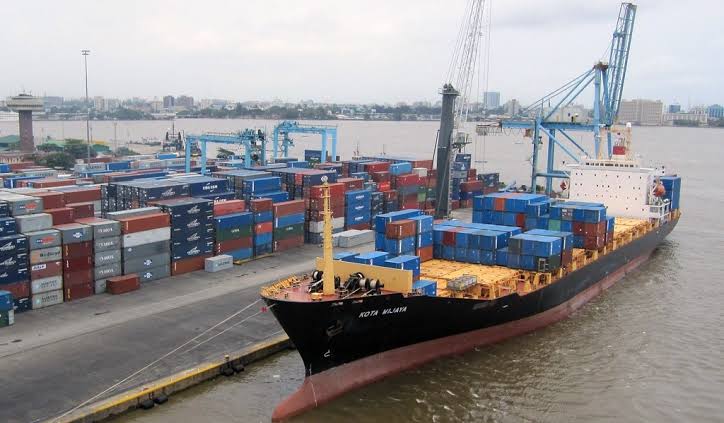The Nigerian Shippers’ Council (NSC) plans to end the collection of shipping charges and other charges in foreign currency, especially United States dollars, by service providers at the nation’s seaports.
LEADERSHIP reports that clearing agents and operators of Inland Dryports have raised the alarm about some shipping companies charging in foreign currency especially on export cargoes
However, speaking when the general manager of the Southern Operation of LEADERSHIP Newspaper, Yange Ikyaa, paid a courtesy visit to the Council, the executive secretary, Pius Akutah, said dollarized payments at the seaport must stop to reduce pressure on the naira.
“This is an issue we can take up with the minister of Marine and Blue Economy, Adegboyega Oyetola, and Mr President on how we can deal with the issue to ease the pressure on the naira,” he stated.
“For instance, we are looking into the issue of dollarised payment of some of the services rendered in the sector, and our own concern is that it’s putting pressure on the naira. Also, the fact that President Bola Tinubu has taken the initiative to sell crude oil to Nigerian refineries in naira clearly shows that the president understands how the economy is moving and he’s addressing issues putting pressure on the dollar.”
The council boss also stated that comprehensive automation, including the public and private sectors, is needed to drive efficiency at the nation’s seaports.
Akutah noted that manual port operations will slow port processes and reduce efficiency. Automation will increase trade volumes and increase turnaround time for vessels at the seaports.
“We are at the forefront of driving port automation, and we believe if we still allow physical contacts, it will further slow down port processes, and we won’t achieve the efficiency that we are looking for in order to drive trade volume and turn around time of cargoes at the seaports.
“These are the things affecting trade facilitation. We need to automate our system and automation is not a question of private sectors alone but public sector also. The public sector must also automate its system, and at the Shippers Council, we have done a lot of automation, and more is still going on. All-round automation is needed to drive an all-round efficiency,” he stated.
The Shippers’ Council boss also informed the visitors that the council is discussing with concessionaires of Inland Dryports (IDPs) in the country on completion and functionality.
According to him, the IDPs are trade facilitation tools that will address many issues bothering shippers in the country and bring shipping closer to the hinterland.
“One of the mandates we have is to implement the establishment of the Inland Dry port and other critical infrastructure to support trade in Nigeria. We have been doing that, and a few months ago, we commissioned the Inland Dry Port. We are also working on other inland dry ports as well, and they will be commissioned soon.
“The governor of Borno State was here with us to discuss the way forward for the Maiduguri Inland Dryport and we are committed to ensuring that the Inland Dryport comes up next month.
“That’s a trade facilitation tool that will take care of many issues bothering Shipper in the country and our commitment is to bring shipping facilities closer and encourage shippers to use the facilities.
“Last week, we were in Kaduna and Kano and we took a tour of the Inland Dryports and all of these are avenues to partner with shippers, shipping communities together with the service providers who are managing the critical infrastructure to see how issues that are disturbing them can be tackled.
“In the course of our stakeholders’ engagement in Kano, some issues came up, and the issues will impact trade, and we have taken them as challenges that will be dealt with as quickly as possible,” he stated.











